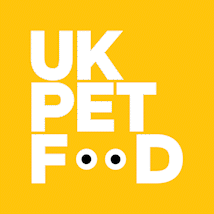Understanding wild birds
At UK Pet Food, we are passionate about encouraging both adults and children to reconnect with nature through wild bird feeding. Our gardens/outdoor spaces are home to a wide variety of wild birds, and by providing the right food throughout the year, as well as maintaining the feeding areas, you can help support these birds during harsher conditions.
Feeding wild birds
Contrary to common belief, not all wild birds eat the same foods. Different species have unique nutritional needs and feeding preferences, influenced by factors such as size, habitat, climate, season, and life stage. By selecting the appropriate feeding products for your garden, you can attract a diverse range of birds, each benefiting from additional nutrition to thrive.
When to feed wild birds?
Spring
Summer
Autumn
Winter
Dealing with predators
Cats are natural predators, and while individual cats may vary in their habits, cat owners can take steps to reduce the impact their pets have on garden birds. For example:

- Limit the time your cat spends outdoors, especially at night and during the early bird-breeding season.
- Attach a bell to your cat’s collar to provide a warning sound, which can help alert potential prey and reduce successful catches.
Birds of prey such as Sparrowhawks may take smaller birds from garden feeding stations, but a few simple steps can make your garden a safer place for visiting birds:
- Position feeding stations and water bowls or baths away from bushes, low covers, or other areas where predators could hide.
- Regularly move the feeding station to different spots in the garden to make it harder for predators to anticipate where birds will gather.
By implementing these practices, you can help create a safer environment for the birds in your garden.
Bird feeders and good hygiene practices
Maintaining proper hygiene around bird feeders is essential for the health and well-being of wild birds. Dirty feeders can become breeding grounds for bacteria, mould, and diseases that can spread among bird populations. Regularly cleaning feeders with warm water and a suitable disinfectant, removing old or spoiled food, and ensuring feeding areas are free from droppings can help minimise the risk of illness. Additionally, rotating feeding locations in your garden prevents the build-up of waste in one spot. By practising good hygiene, you can create a safe and healthy environment for the birds that visit your garden.



